Maybe you already own a truck and horse trailer and need to update, or perhaps you are shopping for your first one. Either way shopping for a truck can be a stressful and expensive experience. But you need to do some thinking and planning ahead so you know what you are shopping for and get the best value for the price you pay for your new truck.
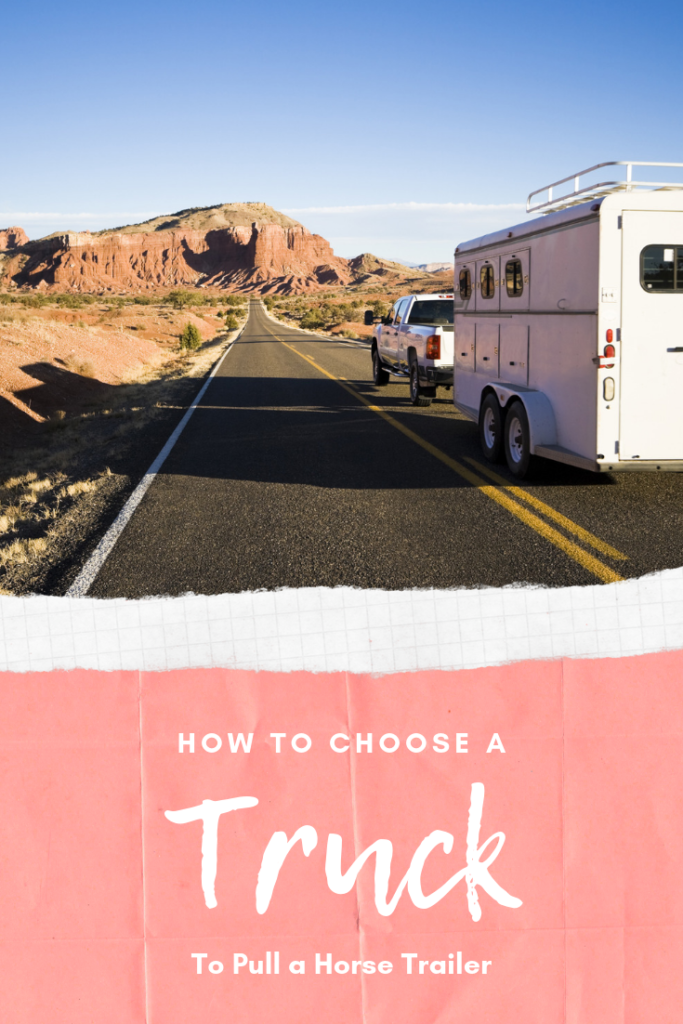
We’ve been wanting to have a truck and trailer for a while now, but were not quite ready to take the plunge financially. (This is where learning to budget/save money comes in handy). I have saved up a fair bit for this truck and could buy an older one with cash if I can find the right truck (ie in perfect condition with low miles, I’m not asking for much here…) But I also understand that I may need to finance part of the purchase if I end up going above the price point that I am comfortable paying cash for.
I started writing this post and didn’t get it finished before I bought my truck! So you will read about what I have learned about my specific truck along the way. The truck I ended up purchasing was a 2004 Ram 2500 Long bed with the 5.9L Cummins engine.
So back to why I am writing this – for many people, it’s hard to decide what you want or need in a truck. You need to determine your wants and needs versus the price they carry. Here are some factors that you will have to narrow down when searching for a truck:
- Gas vs Diesel
- Fuel Economy (or whether you will use the truck for just pulling your horse trailer or as an every day commuter)
- Type of trailer (Gooseneck vs bumper pull)
- Size of the truck (ie 1/2 ton, 3/4 ton or 1 ton)
- Brand (Ford, Ram, Chevy, Toyota, Nissan)
- Budget (Age of the vehicle, added features, etc)
1. Gas VS Diesel
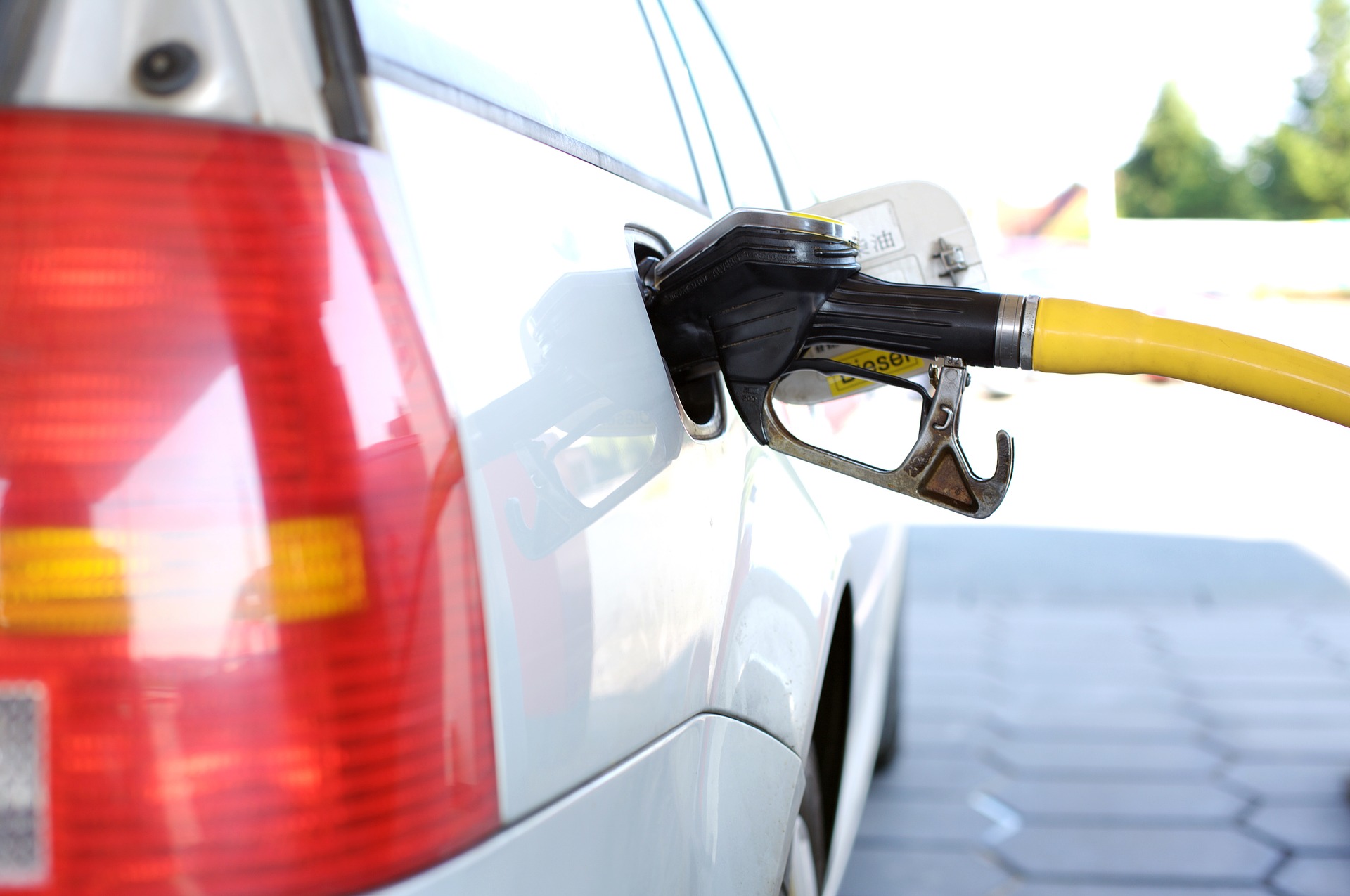
- First thing to consider between gas vs diesel is MPGs (miles per gallon). Diesels get better gas mileage, but buying diesel is also more expensive. So is it better to have to fill the gas tank less often, or with less expensive gas? It seems as though in the past diesel was actually cheaper, but lately diesel has become more expensive per gallon.
- Diesel trucks tend to last longer than their gas counterparts but also cost more to purchase up front as well as to maintain. A diesel oil change for example, can be 30-80% more expensive than a gas oil change. However, they only need to be done every 7500 miles. So the frequency needed for oil changes is less, but they will cost more when you actually go get them done.
- Diesels can be hard to start in the cold. Gas is easier to start when cold because of the engine difference. But you can also remedy the cold by putting in a block heater for your diesel.
- Diesels tend to be louder than gas trucks. This does matter to some people, and should be factored into your decision. Diesel also has an offensive smell for certain people.
2. Fuel Economy
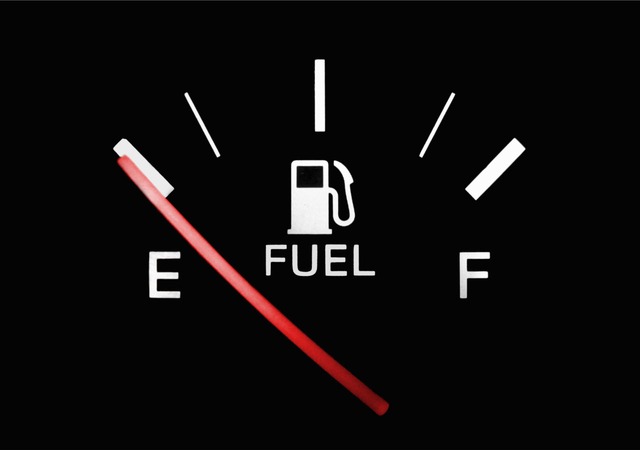
As I was researching which truck to buy, gas vs diesel, MPGs for an older truck I learned that diesels tend to hold their average MPGs much better than a gas truck. The gas truck may get better mileage driving around down, but when it has to work, it loses a lot of fuel efficiency. You need to decide what you plan to use the truck for primarily and how important fuel economy is to you. If you are commuting every day in the truck, then a gas truck that gets higher MPGs is probably better than a diesel that may pull a trailer with better MPGs but driving around town won’t
3. Type of Trailer
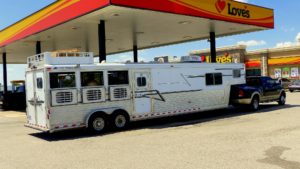
The type of trailer you plan to buy, or already own, will be a contributing factor to what type of truck you buy.
Bumper Pull vs. Gooseneck. A bumper pull is a trailer that attaches to the hitch below your rear bumper. Many trucks will come with that type of hitch already on the truck, but they sometimes don’t! Make sure you check. A Gooseneck trailer is the kind in the photo above If you are committed to having a gooseneck, you can’t buy a suburban and expect it to work. If you want a big 4 horse trailer with living quarters, a 1/2 ton truck won’t be strong enough to pull a trailer that big. So evaluate your current and future wants/needs to determine how large of a truck you’ll need and what type.
*Don’t forget that installing a gooseneck hitch comes at a cost. In my area, I was quoted about $1200 to install a gooseneck into a truck. If you can find what you want to begin with, you will save yourself some money and headache down the road.
4. Size of Truck
The size of the truck is referring to the size as in the weight of the truck (which ultimately determines how much weight you can tow with your vehicle). Rams and Chevys come in 1500, 2500, 3500 etc. Ford Trucks are 150, 250 and 350. These numbers correspond to the size of the truck, ie 1/2 ton, 3/4 ton and 1 ton. The model year, added options and corresponding size of the truck ultimately determine the towing capacity of the truck. (In my truck search I was looking at 2003-2007 Ram 2500 trucks and they varied in their towing capacity based on the model year.) The newer 1/2 ton trucks are now capable of pulling a lot more than their older counterparts, but they definitely cost a lot more! The sizes of trucks to consider are:
- SUV
- 1/2 Ton/1500/150
- 3/4 Ton/2500/250
- 1 Ton/3500/350
Another consideration is whether you want a regular bed (6ft) or long bed (8ft). Regular bed trucks are quite a bit easier to fit into an average parking spot, but they don’t hold as much in the back, so again this comes down to what you plan to use it for!
The last thing to think about is how big of a cab you want. Will a regular cab suffice? Or do you need more seats/seat belts? I knew I wanted at least an extended cab (ie a full door and then a rear hinged back door) – my dog has to fit inside the truck and I’d like to have somewhere to put groceries in case of bad weather.
- Regular cab – this is the typical one bench seat truck cab. Max 3 passengers
- Extended cab – full front seat and a small back seat (the rear door hinges are on the back so you have to open the front door to open the second.
- Crew Cab – these are 4 full doors with two rows of seats. This provides more space in the back for your dog, or whatever your passenger of choice is.
- Mega Cab/Double cab – an enlarged/extended cab, this provides more space in the back seat for passengers and storage.
5. Brand
This is usually a personal preference. I know people who will only buy Fords, but I have always been partial to Dodge/Ram trucks. If you are buying new, the warranty offered by the different brands may also factor into your decision.
If you are buying used, you should heavily research the models around the age that you are looking for. When I was having trouble finding what I wanted, I wavered and thought about getting a Ford. Come to find out that around the age of truck that I wanted, Ford produced a 6L diesel that is notorious for having many problems. So I went back to ruling those out. Researching your preferred age of vehicle and models can save you a lot of money down the road.
6. Budget
Since The Economical Equestrian is all about saving and planning for future expenses, it wouldn’t be right if we didn’t talk about budget. Most people aren’t working with an unlimited budget, so you’ll need to plan accordingly.
I can’t tell you how many times, when looking at trucks, I was asked “what is the maximum monthly payment you can afford?” This is not the way you should approach buying any car/truck.
You should set your budget for what you can realistically afford whether it’s cash or over time with payments. The loan terms can determine how much you pay per month. Don’t negotiate the price of your vehicle based on your monthly payment. Negotiate your truck price based on how much you can afford, what you’ve set as your budget and what the true value of the truck is! Use blue book values as well as comparing to other vehicles for sale in your area to determine a fair asking price.
*Don’t bite off more than you can chew when purchasing a truck. You should be more than comfortable buying in cash or making the payments on your vehicle, even if you lose your job (this is why you need to start an emergency fund today!)*
In summary, there are several important things to think about before you actually buy a truck. Decide what you actually need and want – the size of the truck, towing capacity, brand, age, etc – and then make sure you stick to your budget. This is a big purchase, but it doesn’t have to be intimidating if you do your research.
Financing
Let’s have a short discussion about financing. Hopefully you have a hefty down payment to make your monthly payments reasonable, or you can get really low interest rates if you buy new.
We ended up financing part of our truck using Lightstream and applying online could not have been easier. It took me about 20 minutes to apply for the loan and if you have good credit and sign up for auto pay, your interest rate will be quite low (it was 3.34% when I applied but I think it has gone up a little recently). Once you have been approved, you choose when your loan is funded (ie they wire you the money). It only took two days from applying to having the money in our account to buy the truck. The dealership we purchased it from offered us “the best interest rate around” of 6.99%!!! They said it was because it was a used vehicle…
So do yourself a favor and shop around for the best interest rate given your credit history. Sometimes dealerships can help you get financed when a different loan provider (like Lightstream) would not approve you.
Take each of these factors into consideration before going shopping for your new/used truck. Be conscious of what you want, your budget and what you actually need to fulfill your needs!
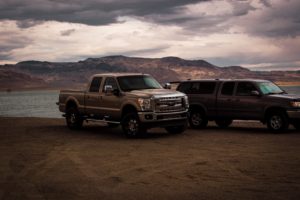
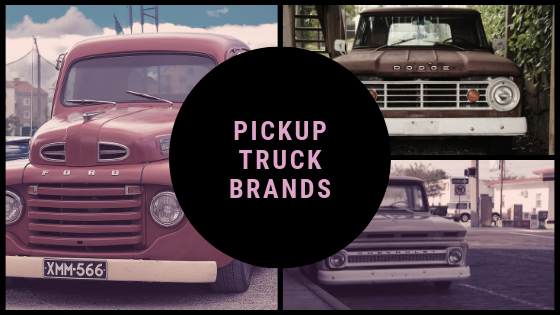
Leave a Reply